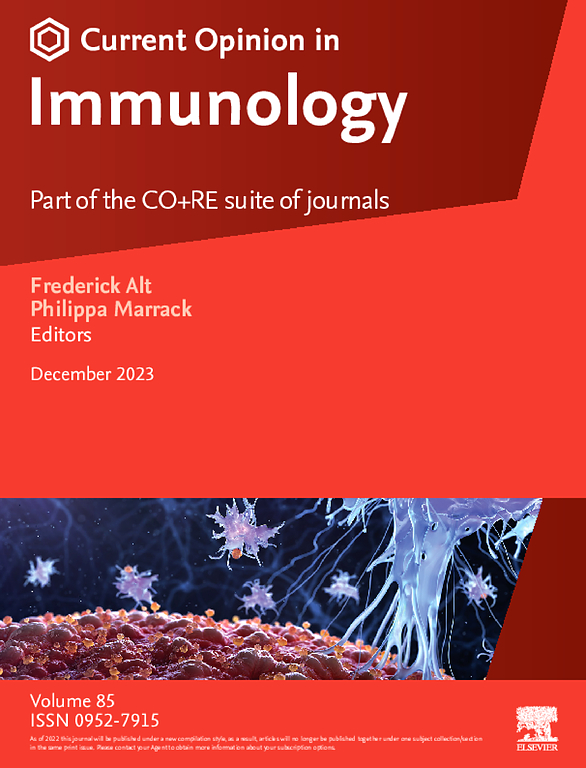补体系统调节在年龄相关性黄斑变性:导航失败,建立未来的成功
IF 5.8
2区 医学
Q1 IMMUNOLOGY
引用次数: 0
摘要
年龄相关性黄斑变性(AMD)是发达国家老年人不可逆中央视力丧失的主要原因。补体系统失调与AMD的发病和进化有关。补体抑制疗法已被批准在美国作为主要治疗地理萎缩,干型AMD。它们在减缓地理萎缩病变的生长方面显示出中等疗效,但在视觉功能方面没有表现出改善。挑战仍然存在,包括干预的最佳时机、递送路线、安全性问题、缺乏敏感的生物标志物来评估疗效和指导患者选择,以及治疗反应的可变性。补体调节是一种有前景但复杂的AMD治疗途径。未来的成功将需要更早的干预,整合遗传和成像生物标志物的精准医学方法,以及探索组合或基于基因的治疗方法。本文章由计算机程序翻译,如有差异,请以英文原文为准。
Complement system modulation in age-related macular degeneration: navigating failures, building future successes
Age-related macular degeneration (AMD) is a leading cause of irreversible central vision loss in elderly populations across developed countries. Complement system dysregulation has been implicated in AMD onset and evolution. Complement inhibition therapies have been authorized in the USA as the primary treatment for geographic atrophy, the dry form of AMD. They have shown moderate efficacy in slowing geographic atrophy lesion growth but have not demonstrated improvements in visual function. Challenges remain, including the optimal timing of intervention, delivery routes, safety concerns, the lack of sensitive biomarkers to assess efficacy and guide patient selection, and variability in therapeutic response.
Complement modulation represents a promising yet complex therapeutic avenue in AMD. Future success will require earlier intervention, precision medicine approaches integrating genetic and imaging biomarkers, and the exploration of combination or gene-based therapies.
求助全文
通过发布文献求助,成功后即可免费获取论文全文。
去求助
来源期刊
CiteScore
13.30
自引率
1.40%
发文量
94
审稿时长
67 days
期刊介绍:
Current Opinion in Immunology aims to stimulate scientifically grounded, interdisciplinary, multi-scale debate and exchange of ideas. It contains polished, concise and timely reviews and opinions, with particular emphasis on those articles published in the past two years. In addition to describing recent trends, the authors are encouraged to give their subjective opinion of the topics discussed.
In Current Opinion in Immunology we help the reader by providing in a systematic manner: 1. The views of experts on current advances in their field in a clear and readable form. 2. Evaluations of the most interesting papers, annotated by experts, from the great wealth of original publications.
Current Opinion in Immunology will serve as an invaluable source of information for researchers, lecturers, teachers, professionals, policy makers and students.
Current Opinion in Immunology builds on Elsevier''s reputation for excellence in scientific publishing and long-standing commitment to communicating reproducible biomedical research targeted at improving human health. It is a companion to the new Gold Open Access journal Current Research in Immunology and is part of the Current Opinion and Research(CO+RE) suite of journals. All CO+RE journals leverage the Current Opinion legacy-of editorial excellence, high-impact, and global reach-to ensure they are a widely read resource that is integral to scientists'' workflow.

 求助内容:
求助内容: 应助结果提醒方式:
应助结果提醒方式:


